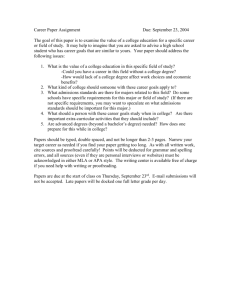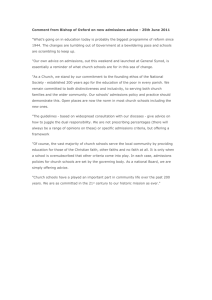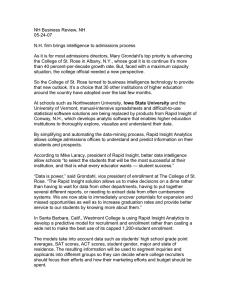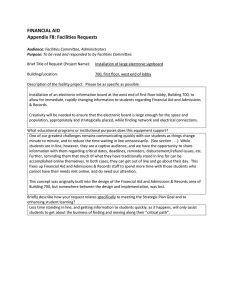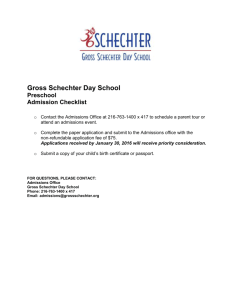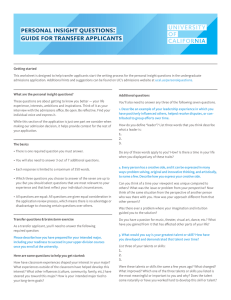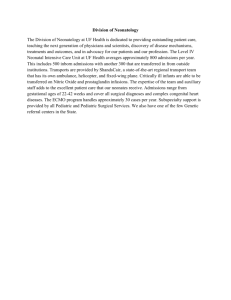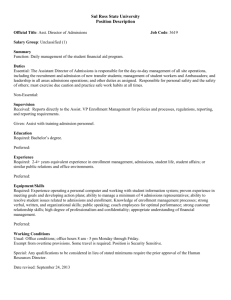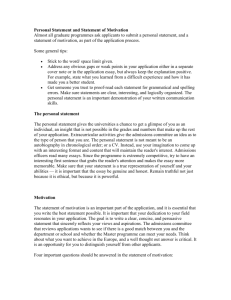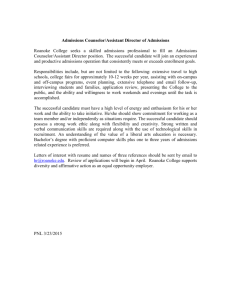Law School Personal Statement Tips
advertisement
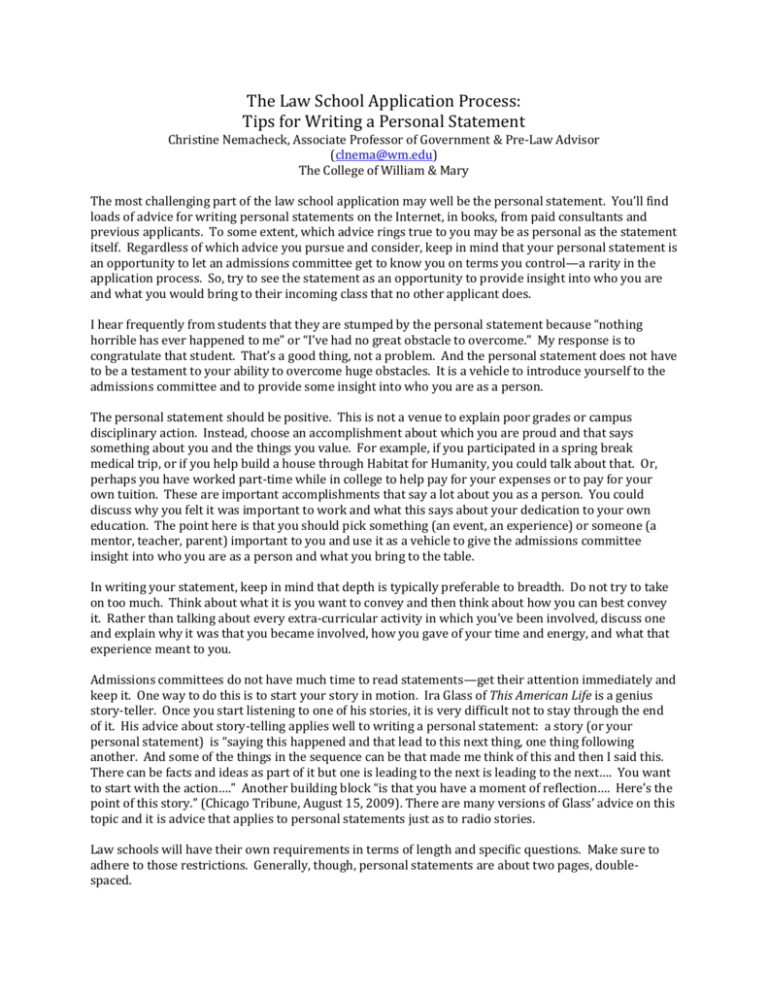
The Law School Application Process: Tips for Writing a Personal Statement Christine Nemacheck, Associate Professor of Government & Pre-Law Advisor (clnema@wm.edu) The College of William & Mary The most challenging part of the law school application may well be the personal statement. You’ll find loads of advice for writing personal statements on the Internet, in books, from paid consultants and previous applicants. To some extent, which advice rings true to you may be as personal as the statement itself. Regardless of which advice you pursue and consider, keep in mind that your personal statement is an opportunity to let an admissions committee get to know you on terms you control—a rarity in the application process. So, try to see the statement as an opportunity to provide insight into who you are and what you would bring to their incoming class that no other applicant does. I hear frequently from students that they are stumped by the personal statement because “nothing horrible has ever happened to me” or “I’ve had no great obstacle to overcome.” My response is to congratulate that student. That’s a good thing, not a problem. And the personal statement does not have to be a testament to your ability to overcome huge obstacles. It is a vehicle to introduce yourself to the admissions committee and to provide some insight into who you are as a person. The personal statement should be positive. This is not a venue to explain poor grades or campus disciplinary action. Instead, choose an accomplishment about which you are proud and that says something about you and the things you value. For example, if you participated in a spring break medical trip, or if you help build a house through Habitat for Humanity, you could talk about that. Or, perhaps you have worked part-time while in college to help pay for your expenses or to pay for your own tuition. These are important accomplishments that say a lot about you as a person. You could discuss why you felt it was important to work and what this says about your dedication to your own education. The point here is that you should pick something (an event, an experience) or someone (a mentor, teacher, parent) important to you and use it as a vehicle to give the admissions committee insight into who you are as a person and what you bring to the table. In writing your statement, keep in mind that depth is typically preferable to breadth. Do not try to take on too much. Think about what it is you want to convey and then think about how you can best convey it. Rather than talking about every extra-curricular activity in which you’ve been involved, discuss one and explain why it was that you became involved, how you gave of your time and energy, and what that experience meant to you. Admissions committees do not have much time to read statements—get their attention immediately and keep it. One way to do this is to start your story in motion. Ira Glass of This American Life is a genius story-teller. Once you start listening to one of his stories, it is very difficult not to stay through the end of it. His advice about story-telling applies well to writing a personal statement: a story (or your personal statement) is “saying this happened and that lead to this next thing, one thing following another. And some of the things in the sequence can be that made me think of this and then I said this. There can be facts and ideas as part of it but one is leading to the next is leading to the next…. You want to start with the action….” Another building block “is that you have a moment of reflection…. Here’s the point of this story.” (Chicago Tribune, August 15, 2009). There are many versions of Glass’ advice on this topic and it is advice that applies to personal statements just as to radio stories. Law schools will have their own requirements in terms of length and specific questions. Make sure to adhere to those restrictions. Generally, though, personal statements are about two pages, doublespaced.

